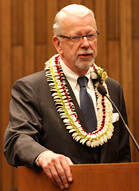This week I witnessed something fascinating occur. Scores of websites and blogs seized upon a report published in the Journal of Sex Research, which claimed almost a third of partners who said they were monogamous, had in fact slept with someone outside of the relationship. This was not a claim about marriage, and it only referred to heterosexual couples where marriage was largely not in the mix, this was about attitudes about monogamy among college students.
On the Feminist website Jezebel the headline was “Everyone is Cheating on Everyone.” On the Daily Dish blog, the headline read “The Illusion of Heterosexual Monogamy.” On the website Nerve, I saw them post it as “Study: Your Partner is Likely Sleeping with Someone Else.”
The problem, as it turned out, was the actual study made no such universal claims.
Dr. Pisaster writes at Pajiba:
“I’ve gotten used to seeing summaries of sex research on popular news sites and blogs that grossly misrepresent the results of the studies in question, but this one is probably the most appalling I’ve seen yet.
“… You see, this was not some survey of typical college students, as most of the studies I report on here are. The researchers were actually trying to study HIV prevention strategies among heterosexual couples, and so they specifically chose couples for who they deemed to be ‘at risk,’ for HIV transmission…In other words, the researchers selected people whose relationships were likely to be on shaky ground with respect to monogamy to begin with.
“… The problem is that websites are picking up on and spreading the results while completely ignoring the context.”
The doctor doesn't stop there:
“Sex news is always good for page views and it takes way less effort to chew up and spit out someone else’s summary than it does to dig up the original work, but it’s irresponsible to spread information without checking the source. Of all the articles about this research that I’ve seen, not one has presented the data fully and honestly. Instead they’ve all parroted the sensational notion that most young people are cheaters. The researchers themselves note that the participants of this study are not a representative population, not even a representative population of young people. And yet every news organization and blog that’s picked it up has treated the study as if it must apply universally.”
I think Dr. Pisaster, as thorough as he is in noting the sensationalist reasons that some bloggers picked up on this (false) claim, misses a second reason why many people were eager to spread it around: they don’t actually believe in monogamy.
I can understand that in our culture people can be prone to be pessimistic about monogamy (I fear that many people are against monogamy precisely because they have been hurt by partners who did not practice monogamy with them).
But even if people sometimes fail to be monogamous, and fail to be wholly committed to their relationship, that does not mean monogamy is not a very good thing - an ideal we should all challenge ourselves to live up to. Jenny Hope, citing multiple studies, writes in the UK Daily Mail that “the longer a marriage lasts the more the rewards [i.e., mental and physical wellbeing] accumulate – the only catch being that the relationship has to be loving and supportive.”
Jenny continues:
“Marriage cheers you up, improves your diet and helps you live longer, researchers say.
It brings better mental and physical health, reducing the chance of premature death by 15 per cent, according to major studies in seven European countries.
“Marriage and other forms of partnership can be placed along a sliding scale of commitment, with greater commitment conferring greater benefit,’ he added.
“‘That marriage generally indicates a deeper commitment might explain why marriage is associated with better mental health outcomes than cohabiting. Cohabiting relationships tend to be less enduring.’”
Monogamy is essential to the high-level type of commitment these studies show results in the best human flourishing, so it is not surprising that monogamy is essential to marriage. After all, what is more loving than to commit oneself to being totally faithful and open to one person, for life? That’s marriage.
So let’s not be so fast to proclaim the “end of monogamy”, because the end of monogamy represents the end of people’s best chance to enjoy the relationships that most fulfill them.




 Mike Gronstal, the Democratic Majority Leader in the Iowa Senate is practically throwing his body in front of the door to the voting booth, promising to block a state marriage amendment no matter how many Iowans want it. And yet today he had the chutzpah to
Mike Gronstal, the Democratic Majority Leader in the Iowa Senate is practically throwing his body in front of the door to the voting booth, promising to block a state marriage amendment no matter how many Iowans want it. And yet today he had the chutzpah to 




